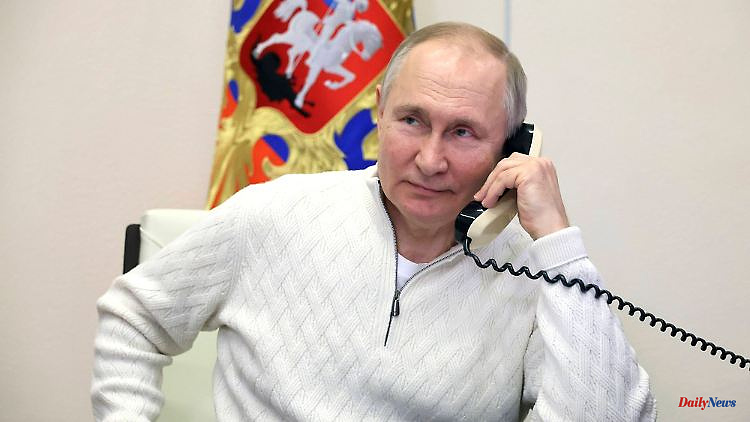The "ceasefire" declared by Vladimir Putin for the Orthodox Christmas celebration is not just a gambit of Kremlin propaganda. It also serves the purpose of determining positions of the Ukrainian air defenses. That must be clear to observers in the West.
When sirens were heard all over Ukraine yesterday, Friday, shortly after the beginning of the "ceasefire" announced by the Russian President, it had nothing to do with renewed mass shelling of the Ukrainian energy infrastructure - unlike on New Year's Eve, for example. The alarm, which lasted almost two hours, was triggered because the Russian Air Force had climbed into Belarusian airspace. It was clearly a matter of preparing for new attacks.
The MiG-31 interceptors, which can carry Kinzhal-class hypersonic missiles, flew again in Belarus. These create almost insurmountable difficulties for the Ukrainian anti-aircraft defense system. In such cases, an air alert is triggered almost automatically across the entire territory of Ukraine. But along with the MiG-31 also flew reconnaissance aircraft. Your goal is to detect Ukraine's anti-aircraft defense systems so that the next attack will be more successful. This is only possible when the systems are switched on.
Thanks to countless specialized telegram channels, the people of Ukraine have now learned to distinguish between the different types of air alert. When MiG-31s are in the air in Belarus, they know that there is hardly any shelling right now - but certainly in the next few days.
All the more incomprehensible for the Ukrainians are the isolated voices in the West that see Vladimir Putin's "ceasefire" as a kind of hope, as a possible beginning for peace. After the bloody attacks on Kherson around western Christmas, after the mass shelling on New Year's Day - the most important winter holiday in Ukraine and Russia - it seemed as if these people were more concerned with their personal illusions than with reality.
And you have to give Putin that: his announcement wasn't a great propaganda success, but it was a clever, confusing step that cost the Kremlin comparatively little. Perhaps apart from the momentary indignation of its own hardliners, who refused to accept that Russia could stop fighting for 36 hours while progress was being made near Bakhmut in Soledar. However, the so-called armistice did not stop this progress.
Nevertheless, such an "offer" will certainly stick in the minds of some people in the West who want to believe that Putin is actually interested in peace at the moment. Among people who are convinced that British Prime Minister Boris Johnson prevented Kyiv from signing a supposedly finished peace treaty in April. And people who completely ignore the fact that Russia is demanding that Ukraine accept the "new territorial realities" before any negotiations, even though Moscow does not fully control any of the four Ukrainian governorates it tried to annex last fall.
For years, Russian communication has been based on maximum confusion, also internally, towards the Russians. If there is a problem somewhere, the Kremlin usually does not publish a single version of events, but as many as possible, so that the public can no longer tell what is true and what is not. Accordingly, Russia has also made contradictory public statements about its war goals - and in doing so has tried to give the impression that Ukraine is rejecting serious offers of talks from Moscow.
But reality cannot be changed, not even by the Kremlin. In 2023, perhaps even well beyond that, Putin, who did not stand in front of soldiers for nothing in his New Year's speech, is banking everything on the war - and the really long one, in which Russia can exploit its resource advantage over Ukraine. In Russia, a de facto war economy has long been in place for this purpose, and there is no doubt that the first wave of mobilization in the fall will be followed by more. Putin won't stop until he makes at least a vassal state out of most of Ukraine, even if he has to pause tactically in between.
However, there is no guarantee that his calculations will work out, and here the new arms shipments coordinated by the US, Germany and France are an important step in the right direction - although it is also time to start supplying Western main battle tanks to Ukraine . Of course, supporting Ukraine, which is almost economically devastated, is not cheap and generally a tour de force. But it is not only of existential importance for Kyiv that Putin does not get his way. Otherwise, the price would be much, much higher for everyone involved.












